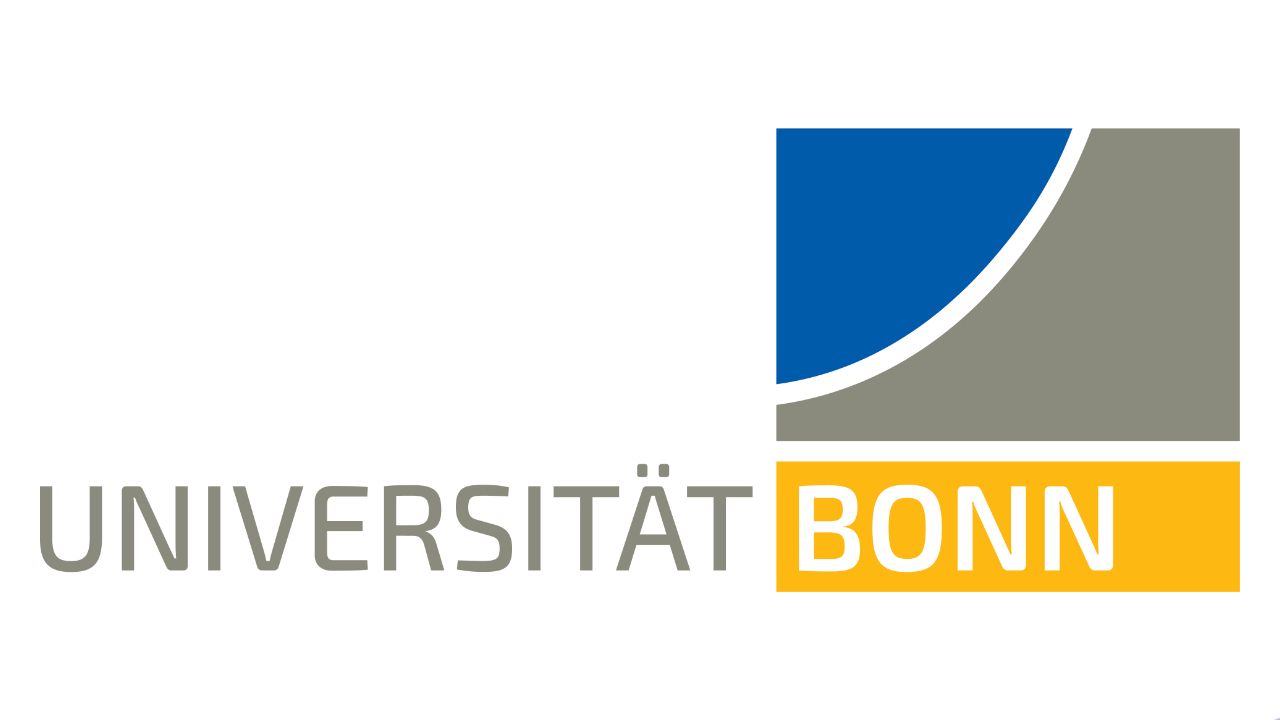Explore By
 Exams
Exams
 Countries
Countries
 Expenses
Expenses
 Universities
Universities
Germany has become the top destination for Indian students abroad, with nearly 43,000 currently enrolled in its universities, a number that has doubled in the past five years. This trend is fueled by Germany's strong economy, high employment rate of nearly 80%, and the presence of 49 universities in the QS World University Rankings 2024. Study in Germany for Indian students offers excellent education, abundant job opportunities, and a vibrant international community, making it an ideal choice for higher education.
Germany, with its strong economy and high employment rate, is an ideal choice for those looking to study in Germany 2024. Study in Germany offers excellent job prospects and a vibrant international community. The cost of studying in Germany is also relatively affordable compared to other Western countries. Consulting with study in Germany consultants can help navigate the process. Study in Germany for Indian students offers these advantages:
Top Universities:
Germany hosts over 400 higher education institutions, including public "tuition-free" colleges serving over 2.4 million students and a smaller number of private institutions.
Notable universities include Technical University of Munich (37th), RWTH Aachen University (106th), and others in the world's top 210.
No Tuition Fees:
Most public universities in Germany offer tuition-free education for international students.
Diverse Course Options:
Over 2,084 international study programs are available in English, meeting international standards.
Students can choose from 21,000 bachelor's, master's, and doctoral degree programs.
Affordable Cost of Living:
Average monthly living cost: 1,486 EUR (1.30 lakhs INR)
Relatively low compared to neighboring European countries, with an annual average of about 74,000 INR per month or 8.9 lakhs INR per year.
Financial Aid and Scholarships:
Scholarships are available from DAAD and Deutschlandstipendium, covering up to 50% of tuition fees and accommodation.
Numerous other scholarships are offered by various foundations.
Job Opportunities:
International students can work part-time for up to 20 hours per week or 120 full days per year.
Over 60% of international students are expected to work part-time while studying in Germany.
The admission process differs from college to college, but the following documents remain/general requirements remain staple for admission to higher education in Canada. You can either apply directly through university websites or use UNI ASSIST, which charges 55 EUR for 2-3 universities and 15 EUR for each additional one. UNI ASSIST only works with partner universities. To study in Germany 2024 students will need a ‘Hochschulzugangsberechtigung’ ‘HZB’ - which is a school-leaving qualification.
Germany has two main intakes for university admissions:
Intake | Start Month | Application Period | Application Deadlines |
Summer 2024 | April | January 15th - February 15th (extended to April 30th for some programs) | January to March |
Winter 2024 | October | May 15th - July 15th (early deadlines can be as early as February 15th) | July to September |
With the application and visa process taking about 9 months, early application is essential. To navigate the admission process and find the best options, study in Germany consultants can offer valuable assistance and support.
Admission requirements to study in Germany
Academic Requirements | Undergraduate (UG): Minimum 90% in Higher School Certificate/A bachelor's degree or its equivalent Postgraduate (PG): At least 70-75% from a recognized Indian university |
English language proficiency score | IELTS score: A minimum result of 6.5 overall and a minimum result of 6.0 in each band TOEFL iBT: score:70- 85 overall |
Additional Documents | Letter of Motivation | Letters of Recommendation | Statement of purpose |
Standardized test | GMAT: 600 | GRE score: 600 |
How to study in Germany after 12th:
To study in Germany after 12th grade, you'll need to prepare the following documents, which are commonly required by top German universities:
Class X and Class XII Marksheet: Your academic transcripts from previous education.
University Offer Letter: An acceptance letter from a German university.
Statement of Purpose for Germany: A personal statement outlining your academic and career goals.
Bank Statement: Proof of financial resources to support your studies.
Passport: A valid passport for international travel.
Health Insurance: Coverage for health-related expenses during your stay.
Language Proficiency: Proof of German or English language skills, depending on the medium of instruction.
These documents are essential to ensure a smooth application process and successful admission to study in Germany 2024.
Academic Requirements for MBBS in Germany
Eligibility to study MBBS in Germany involves several key requirements. Most universities accept applications for medical programs during the winter semester, making April to August the ideal time to apply. To study abroad in Germany for an MBBS, you must meet the following criteria:
A medical educational background with 85% or above in Physics, Chemistry, and Biology
A score of 60% or higher in the National Eligibility-cum-Entrance Test (NEET), which is mandatory for medical studies abroad
An Eligibility Certificate issued by the Medical Council of India
1-2 years of voluntary or community medical service work
Official transcripts
A valid passport
For a successful application, it's beneficial to seek assistance from study in Germany consultants to ensure you meet all requirements for study in Germany 2024.
Proof of English proficiency (TOEFL/IELTS)
GMAT/GRE for postgraduate programs
Letters of recommendation
Statement of purpose
Academic transcripts
Copy of a valid passport
Germany is renowned for its high-quality education and strong academic programs, making it a top choice for those looking to study in Germany. Notably, universities such as the Technical University of Munich, Ludwig-Maximilians University, and Ruprecht Karl University of Heidelberg rank among the top 100 in the QS World University Rankings. Additionally, Munich and Berlin are listed among the top 10 best cities in the world for higher education.

Technical University of Munich
Munich, Bavaria
Know More

Ludwig Maximilian University of Munich
Munich, Bavaria
Know More

University of Bonn
Bonn, North Rhine-Westphalia
Know More
Germany is renowned for its excellence in engineering education, making it a top destination for those looking to study in Germany. The country offers numerous job opportunities in this field, which attract international students. Besides engineering, study abroad in Germany also draws a significant number of international students to programs in management, computer science, and mathematics, among other fields.
When considering the cost of studying in Germany as an Indian student, public universities generally do not charge tuition fees. However, students are required to pay a “Semesterbeitrag” or administrative fee, which is usually between 150 and 300 euros per semester (₹13,407 to ₹31,283). For Indian students aiming to study abroad in Germany, the estimated yearly cost, including tuition, is €10,000 to €15,000.
Tuition Fees
Programs | Annual Tuition Fees (EUR) |
Undergraduate Programs | EUR 226 to EUR 3000 (20,642 to 2.74 lakhs INR) |
Graduate Programs | 67 EUR to 13,000 EUR (approximately 5,958 INR to 11.56 lakhs INR) |
MBA | EUR 33,500 to EUR 43,000 (30.59 lakhs to 39.27 lakhs INR) |
Cost of living while studying in Germany
Living expenses in Germany differ by city, with international students usually spending about 1,486 EUR per month. For those planning to study abroad in Germany, consulting with study in Germany consultants can help manage these expenses effectively. While the living costs may be higher for Indian students, study in Germany for Indian students offers excellent educational opportunities.
Expense Type | Cost per month (EUR) |
Rent | 837 |
Utilities | 274 |
Meal | 235 |
Transportation | 62 |
Mobile Phone and Internet | 78 |
Total | 1486 Approx. |
Recommended Blogs
The cost of studying in Germany is reduced by numerous financial aids, including 100,000 scholarships offered annually by the German Academic Exchange Service (DAAD). For Indian students, there are nearly 25 DAAD scholarships available for studying and researching at German institutions. Study in Germany for Indian students is supported by DAAD’s assistance in finding suitable colleges and scholarships based on fields of study. Study in Germany consultants can further help in navigating these opportunities and managing the costs. Here is the list of scholarships for Indian students to study in Germany.
Scholarships | Eligibility Criteria | Award Value |
TUM Scholarships | Strong academic performance| Demonstrated financial need (low income) | One-time aid: EUR 500 - EUR 1500/Semester |
DAAD Scholarships | Completed first degree required | Scholarship: EUR 934/month |
RWTH Aachen University | Strong academic performance | Up to EUR 5,928/semester based on weekly hours |
QS scholarships | Merit-Based | Scholarship awards up to USD 10,000 |
Deutschland Stipendium | Merit-Based | EUR 300 per month |
Recommended Blogs
Student halls are the most affordable housing option for international students in Germany, with about 40% choosing this option. These halls are usually close to universities and cost around €300 per month, though prices vary. Study abroad in Germany requires early application due to limited space and deadlines. To secure housing, study in Germany for Indian students should contact Studentenwerk (Student Services Organization) or seek assistance from study in Germany consultants.
European and EU/EFTA citizens enjoy the same rights as German citizens, allowing free entry and opportunities to study and work in Germany. However, non-European students who wish to study in Germany must apply for a Study Visa.
Types of German Student Visas:
Schengen Visa:
Suitable for short-term programs like foundation courses and language courses.
Valid for stays from 90 days up to six months.
National Visa:
Required for long-term programs such as Bachelor’s, Master’s, and PhD degrees.
Valid for 3 months to one year, with possible extensions under exceptional circumstances.
After securing admission, students can apply for a study visa at a German consulate in India, with processing taking 6 to 12 weeks.
Students without an admission letter can apply for a prospective student visa (Visum Zur Studienbewerbung), valid for 3 months and extendable to 6 months.
Part-time work opportunities in Germany 2024:
With a German student visa, international students can work while studying. Non-EU students can work up to 120 full days or 240 half days per year, but university jobs (e.g., research assistants) allow for more hours. Starting March 1 2024, international students can work up to 20 hours per week.
Study abroad in Germany allows students to find part-time jobs both online and offline, earning between 10 to 15 Euros per hour. Freelancing and self-employment are not allowed.
Places where International students studying in Germany can look for a part-time jobs.
University Bulletin Board
University Career Centres
Online job portals
Friends and fellow students
Full-time Work Opportunity / Post-Study Work Opportunity in Germany 2024:
International students (Non-EU and EEA students) who study in Germany can stay for up to 18 months after graduation on a post-study work visa to find employment. They can work full-time or part-time in any job during this period. If they secure a job that cannot be filled by a German national or earn over 43,992 Euros as a highly skilled worker, they can apply for a work permit. Their student residence permit will then be converted to an employment residence permit. Study in Germany 2024 offers a pathway to gain valuable work experience after graduation. Students need to provide the following documents to Registration Office for the extension of their residence permit.
Passport
Certificate of completion of their studies from a recognised German Higher Education University
Proof of financial support for the next 18 months
Proof of Health Insurance
After finding a job students can apply for an EU Blue Card - a card which will enable students to live and work in any EU state. In case, an international student wants to stay in Germany and become a permanent resident, they need to apply for a ‘settlement permit’ two years after receiving the EU Blue Card.
Recommended Blogs
Ques.1: Is studying in Germany free?
Answer: Germany offers tuition-free higher education to all international students, including Indian students, since 2014 when a law abolished tuition fees at public universities. The cost of studying in Germany is limited to a “Semesterbeitrag” (semester fee) or administrative fee, ranging from 150 to 350 EUR (approximately ₹13,407 to ₹31,283) per semester. This makes study in Germany for Indian students both accessible and affordable.
Ques.2: Can I study in Germany without knowing German?
Answer: Yes, you can study in Germany without knowing German. Many universities offer English-taught programs, particularly at the postgraduate level. However, learning basic German can be beneficial for daily life and cultural integration.
Ques.3: Why study engineering in Germany?
Answer: Studying engineering in Germany offers the advantage of the renowned Dual Education System, combining 70% workplace experience with 30% classroom learning. With a history of 80 Nobel laureates and rigorous programs, German universities provide high-quality education and practical applications.
Ques.4: Can we do a part-time job while studying in Germany?
Answer: Yes, you can work part-time while studying in Germany. Students are allowed to work up to 120-140 full days or 240-280 half days a year and must limit work to 20 hours per week during the academic term. Full-time employment is permitted during vacations, and earnings under €522.50 per month are generally tax-exempt.
Ques.5: How to study in Germany from India?
Answer: To study in Germany for Indian students, research and apply to German universities offering your desired program. Prepare necessary documents, secure funding, and obtain a student visa. Arrange accommodation and complete enrollment procedures upon arrival in Germany. For additional guidance, consider consulting study in Germany consultants to navigate the process smoothly.
Ques.6: Can I study in Germany without IELTS?
Answer: Yes, you can study in Germany 2024 without IELTS. You can either provide proof that your previous degree was taught in English or submit a Language or Medium of Instruction (MOI) Certificate from your previous institution. Additionally, students from countries with English as a native language or those with a degree in English literature are also exempt from IELTS.
Ques.7: How to study in Germany with scholarships?
Answer: To study in Germany with a scholarship, first research available scholarships like DAAD or Erasmus+. Prepare and submit the required documents and applications by the scholarship deadlines. Secure university admission, and complete any additional scholarship formalities. For personalized assistance, consult study in Germany consultants to ensure a smooth application process.
TOEFL
English language proficiency test
PTE
The computer-based English test
SAT
Standardized test administered by College Board
GRE
Admission test for graduates
GMAT
Test for Business and Management Programs
Confused which university to choose?
Use our recommendation engine to analyze your profile and recommend the most desirable programs that fit you.
Get Recommendation